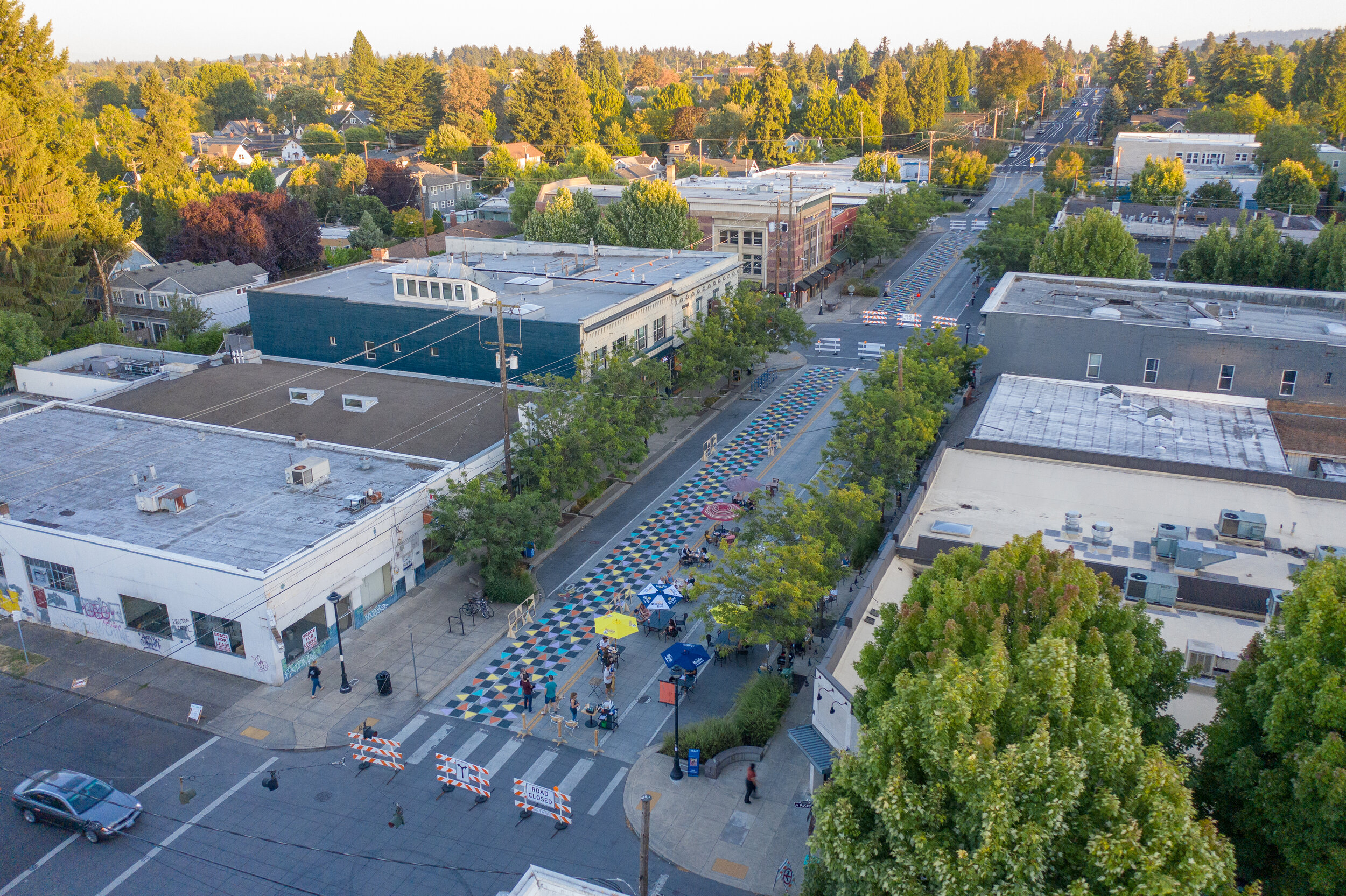Denver Avenue Greenstreet Sees Positive Changes During Pandemic
/
Denver Avenue Plaza in Kenton on August 14th, 2020
This post was done in collaboration with SERA Architects. Images by both SERA and GreenWorks.
Almost fifteen years ago, SERA and GreenWorks were lucky enough to be asked by the Portland Development Commission (now Prosper Portland) to work with City staff and community members on a redesign of N Denver Avenue – the core of Downtown Kenton – as part of a larger revitalization effort for this North Portland neighborhood.
Now the street is undergoing an experiment to see if community members and business owners can agree on a way to close portions of it to cars. “Pro-bono design support for the plaza came from Salazar Architect Inc through Portland State University’s Center for Public Interest Design,” Portland Bureau of Transportation (PBOT) said in a statement on its website. The street was closed to cars and open to pedestrians between August 5th and August 17th, when cars returned. As of August 17th, parking spots have been repurposed as gathering space for people, while lanes are now open for vehicles. The attempts by the community to adapt to life with a global pandemic have garnered local media attention, with coverage from KPTV, KGW8, and Bike Portland. It’s an exciting continuation of the vision the community and the City of Portland have had to see this main street continue to thrive. We’re excited to have been a small part of it.
Kenton Main Street History
Given its location near the Columbia river and the confluence of several major rail lines, Kenton’s roots were as a company town. Originally the headquarters of the Swift Meat Packing Company, the district soon became the locus for several industrial operations, including the Davis Safe and Lock Company, the Columbia Wool Basin Warehouse, and the National Wood Pipe Company. But it was livestock for which Kenton was known, and legend has it that cattle were marched right down Denver Avenue (originally Derby Street) on route to the Livestock Exchange at the nearby Union Stockyards. Despite the presence of the occasional cattle drive, Denver Avenue quickly evolved into the community’s Main Street. In addition to larger homes for Swift executives, the early 1900s Denver Ave included a bank, several retail establishments, two three-story brick hotels, and two theaters. It even featured a streetcar line, which opened in 1909 – two years before the City paved Kenton’s roads.
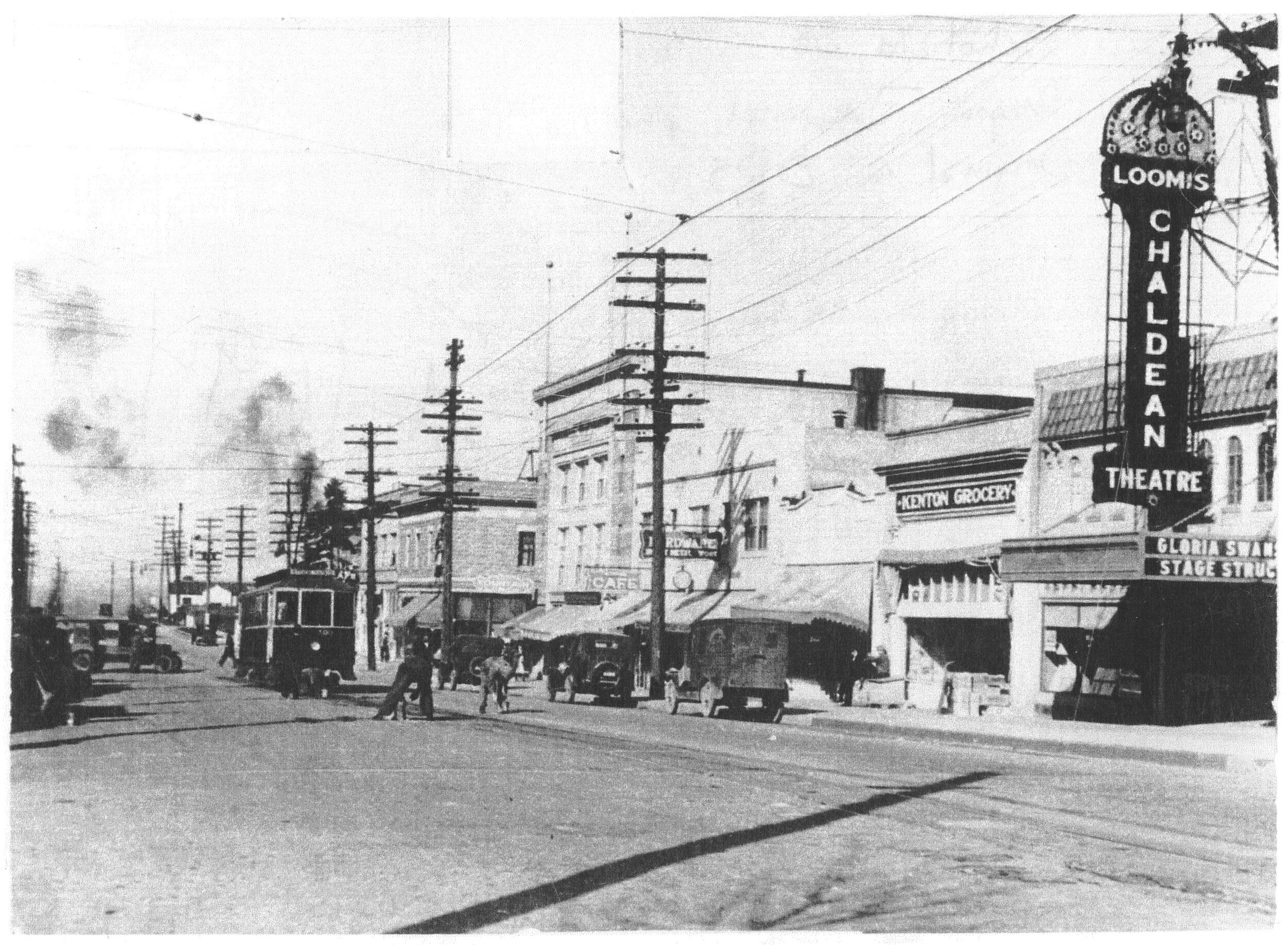
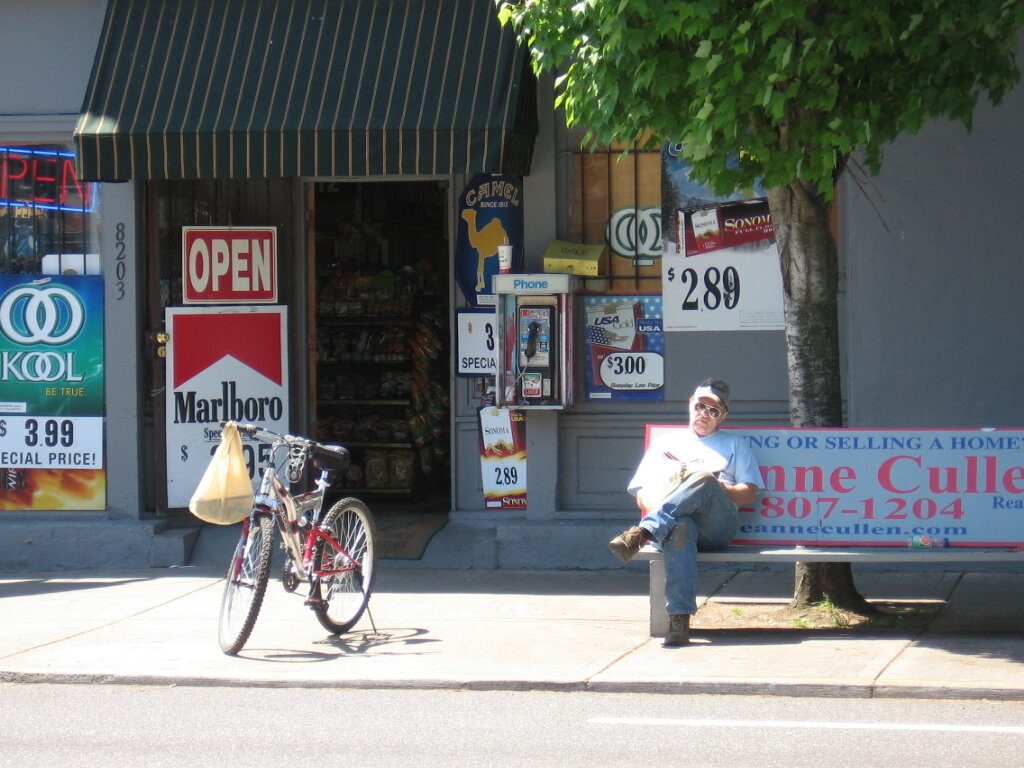
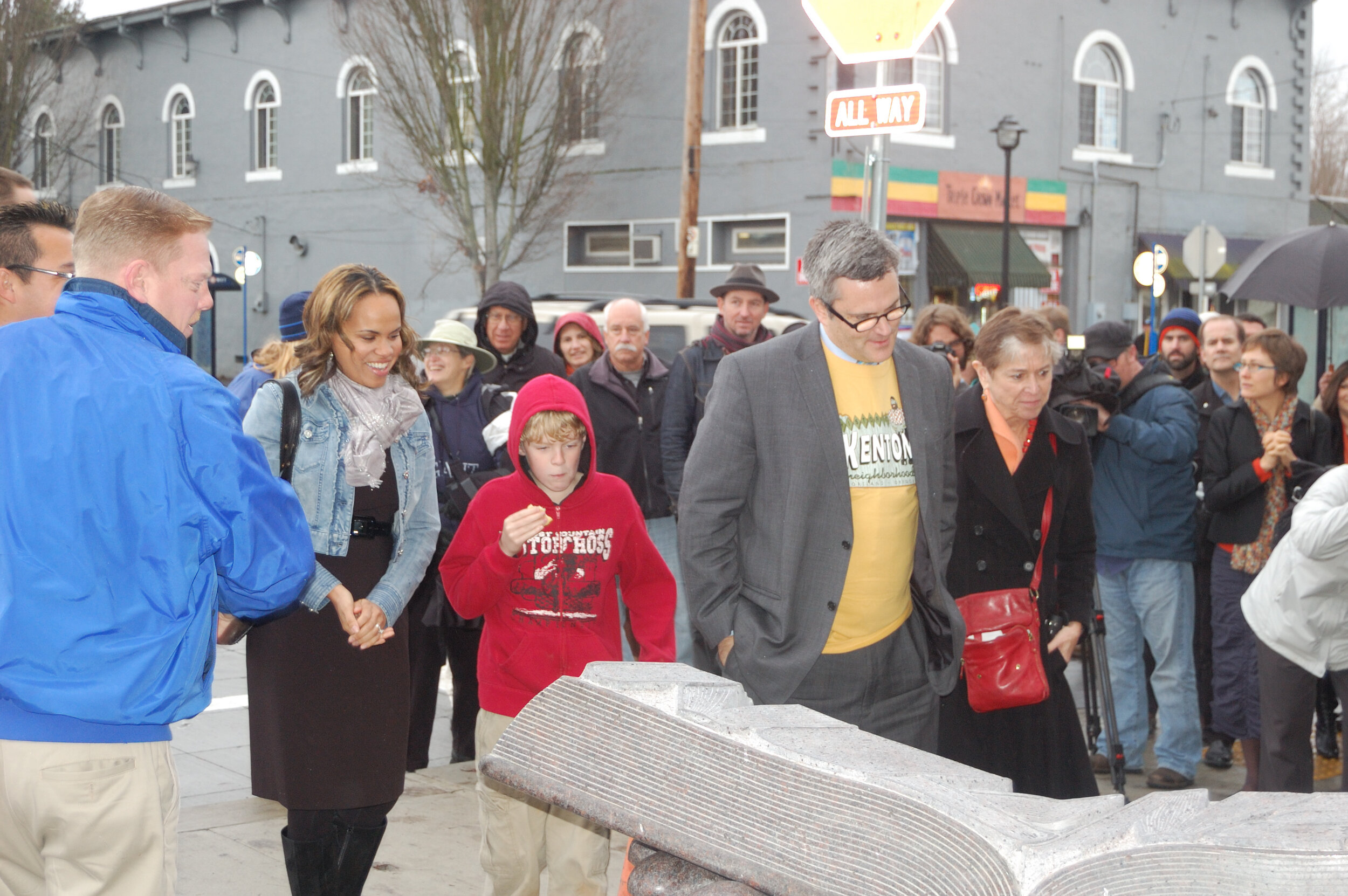
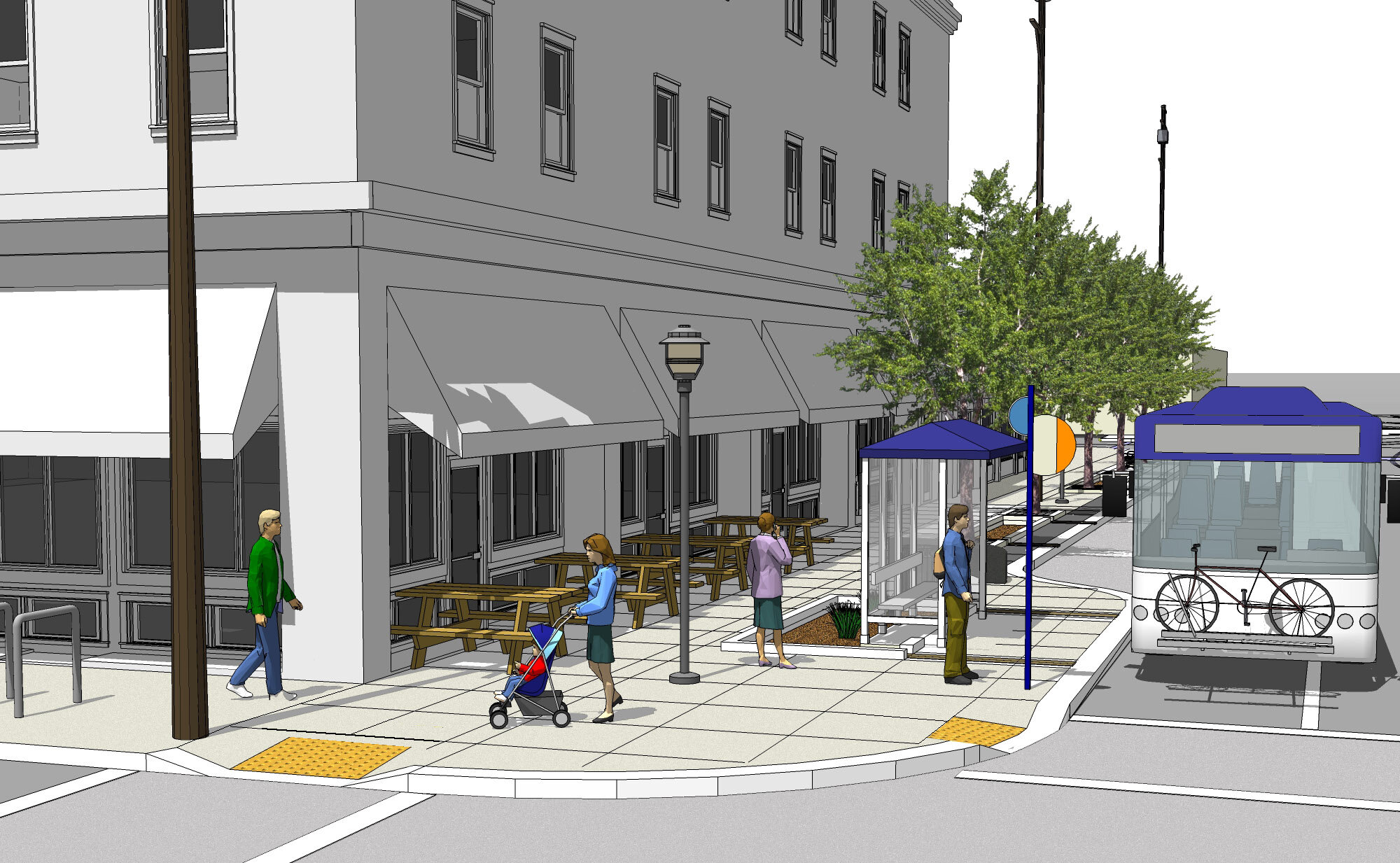
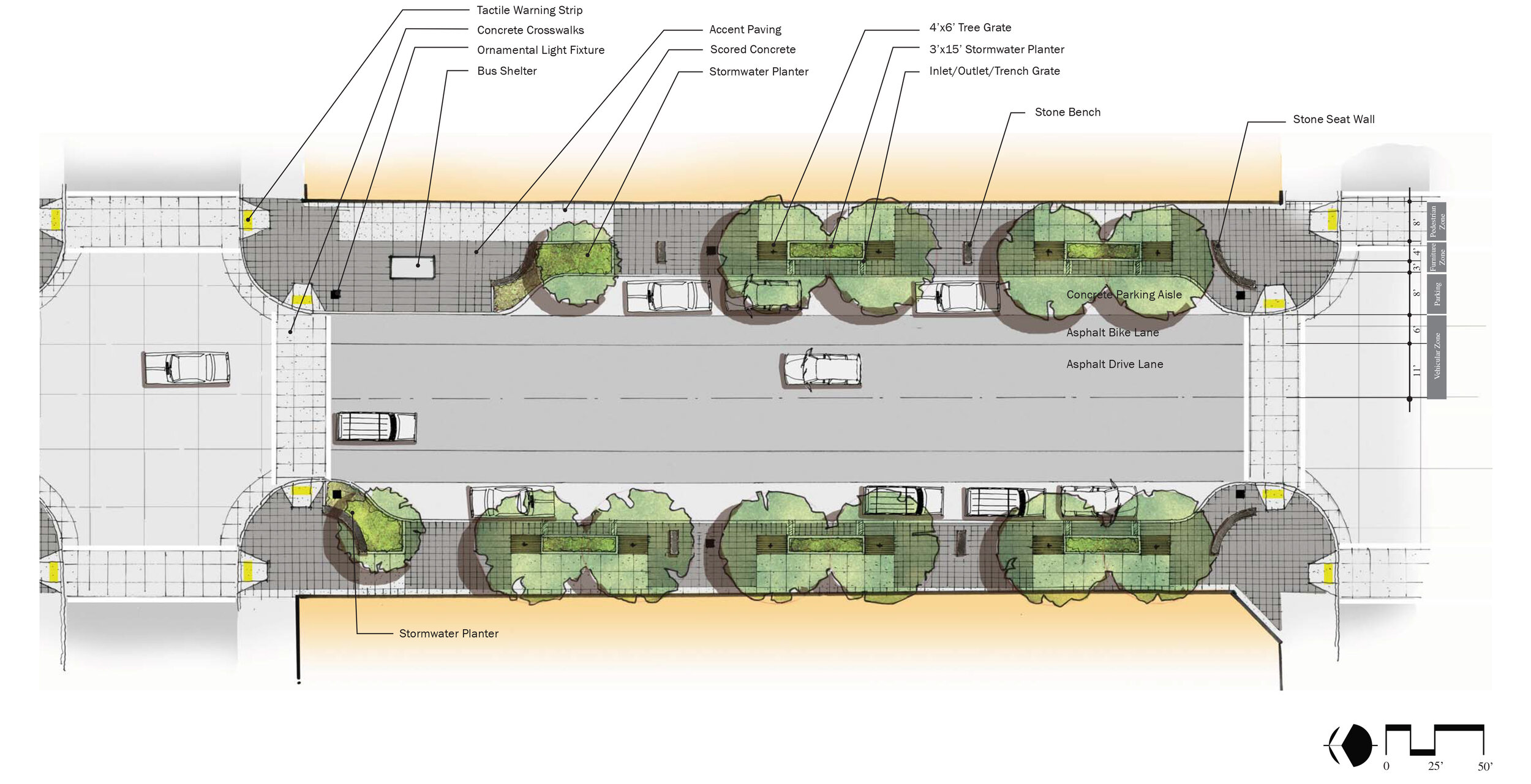
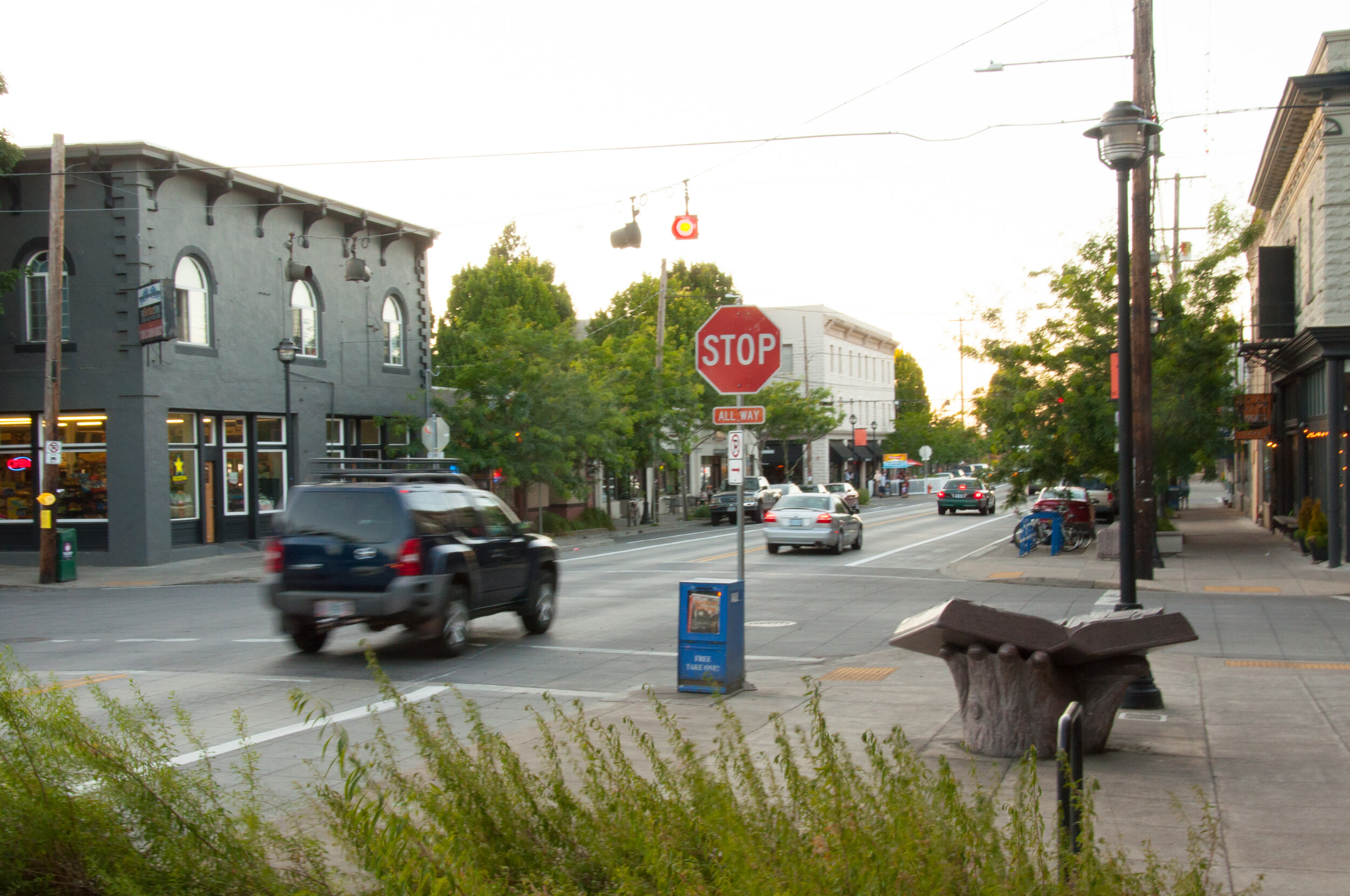
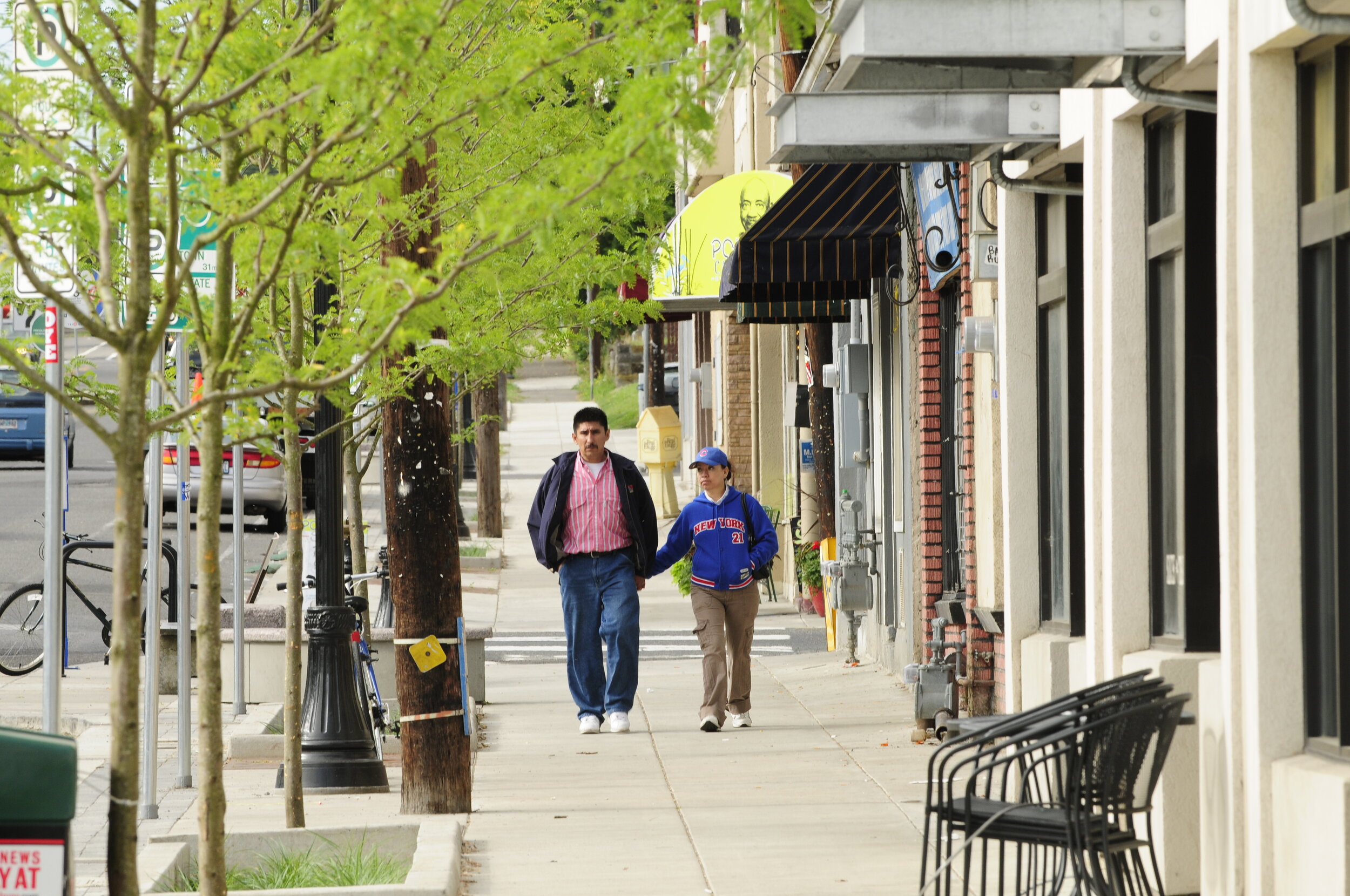
Flash forward a half-century and we see the addition of Kenton’s mascot: a 31-ft concrete-and-metal statue of Paul Bunyan erected in 1959 to celebrate Oregon’s Centennial. The icon today stands at the intersection of Denver and Interstate Avenues, ably marking the northern gateway to Downtown Kenton. However, in the decades following Paul’s arrival, Denver Avenue foundered somewhat, with businesses closing, vacancies rising, and crime (real and perceived) increasing.
When we arrived to do our work in the mid-00’s, the Denver Avenue we found was a collection of scrappy retailers, inscrutable industrial businesses, and empty storefronts – and that patina of neglect that comes from a long drought of both public and private investment. But far more important than the physical appearance of Downtown Kenton was the enthusiasm of the community members who welcomed us to the project and donated hour-after-hour of their time to the streetscape planning effort. They were a mix of Old Guard (loyal to their history and concerned about change) and New Guard (first time homeowners attracted by the district’s affordability and potential), and each side brought values and perspectives that clearly informed the final streetscape design.
The Streetscape Plan our team prepared – with a great deal of help from the City, TriMet, and the Regional Arts & Culture Council – had three major moves to it. First, we eliminated an unnecessary center turn lane and redistributed that space to pedestrians and cyclists. Second, we added in-flow stormwater planters, making Denver Avenue Portland’s first Green Main Street. And third, we worked with a sculptor who prepared a signature art piece as well as several reliefs which collectively celebrated Kenton’s history and culture. All of this was complemented by new street trees, sidewalks, and concrete paving, custom-designed benches, and Historic District street signage.
The streetscape design and the process that led to it sent a clear signal to business and property owners about the City’s commitment to Kenton, which the City further backed with business recruitment efforts and a façade improvement program. The City also worked with Multnomah County to site a new library branch in the heart of Denver Avenue in a storefront previously used for storage. All of this work contributed to a multi-year, positive evolution for the neighborhood’s commercial district. In fact, eighteen businesses either opened or relocated to Downtown Kenton between 2008 and 2012 – despite the Great Recession.
People seated in the Denver Avenue Plaza on August 14th, when the street was closed to cars
And now in 2020, as the coronavirus pandemic and the attendant economic crisis have walloped businesses, communities, and Main Streets across the nation, Denver Avenue is again going through a transformation. The Kenton Business Association, working closely with Portland’s Bureau of Transportation and Salazar Architect, have created #DenverAvePlaza – prioritizing parts of the roadway for outdoor commerce, dining, displays, and socially-distanced gathering. While the new plaza has gone through a couple of changes, the Business Association reports that “what has not changed is our determination to make the Plaza in whatever shape as safe and as enjoyable a space as possible.” This latest iteration of Denver Avenue clearly emphasizes the importance that public space has for us even in these hardest of times (and even if Paul Bunyan has to wear a mask).
Read the 2008 Denver Avenue Downtown Kenton Streetscape Plan we worked on with SERA, a Community Advisory Committee, a City of Portland Technical Advisory Committee, Landsman Transportation Planning, and Valerie Otani and the 2020 presentation for a Healthy Business permit submitted to the City of Portland by the Kenton Business Association, Salazar Architects, and Portland State University’s Center for Public Interest Design.


